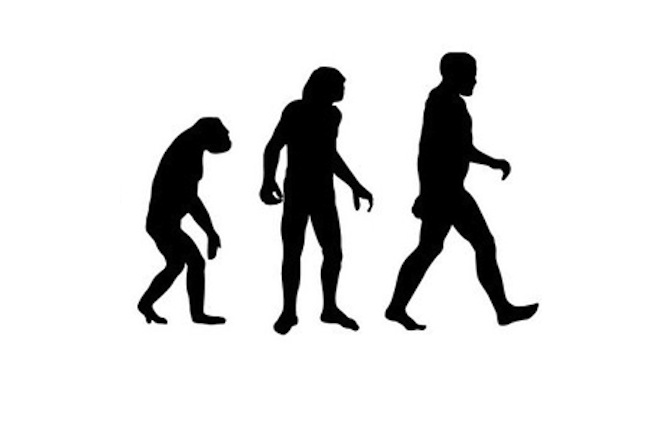One-Third of Americans Don't Believe in Human Evolution

Nearly two-thirds of Americans believe in evolution, while a third say that humans and other life forms have existed in their current states since the beginning of time, according to a new poll.
The new findings come from to the Pew Research Religion & Public Life Project, which surveyed a national sample of 1,983 adults over the phone and also collected survey questionnaires from an additional 4,006 adults. The margin of error for the results is plus or minus 3 percentage points.
A belief in evolution does not necessarily preclude belief in God, the survey found. Nearly a quarter (24 percent) of Americans agreed with the statement, "a supreme being guided the evolution of living things for the purpose of creating humans and other life in the form it exists today."
Religion and science
Pew last surveyed Americans about their beliefs in evolution in 2009, and found that the proportion of believers and non-believers has not changed. Sixty percent of Americans say they believe that humans and other animals have evolved over time. Thirty-three percent say there is no such thing as evolution. [Top 10 Mysteries of the First Humans]
Major religious differences underlie these responses. A majority (64 percent) of white evangelical Protestants disbelieve evolution, compared with 15 percent of white mainline Protestants. Black Protestants are evenly split on the question of evolution.
Among Catholics, Hispanics are slightly less likely to believe in evolution than whites: Fifty-three percent of Hispanic Catholics said humans have evolved over time, compared with 68 percent of White Catholics.
Get the world’s most fascinating discoveries delivered straight to your inbox.
Both white Catholics and white Protestants are similarly likely to see God's hand guiding evolution if they do believe, with 36 percent of all white mainline Protestants and 33 percent of all white Catholics saying a supreme being guided the evolution of living things. Eighteen percent of all white evangelical Protestants believed the same, with only 8 percent saying that natural processes drove evolution.
Politics and demographics
While overall belief in evolution hasn't budged since 2009, the gap between Democrats and Republicans has expanded, Pew found. In 2009, 54 percent of Republicans believed in evolution, compared with 43 percent today. Democrats have not shifted their views, with about 67 percent saying they believed in evolution in both years. Independents are similar to Democrats, with 65 percent saying they believe in evolution. Their views have also been stable since 2009.
Demographics matter, too. Men are slightly more likely to believe in evolution (65 percent) than women (55 percent), and younger people believe more than older people. For example, 68 percent of those under the age of 29 believe in evolution, while only 49 percent of those over 65 do.
Education boosts belief in evolution, Pew found. Only about half (51 percent) of those with a high-school degree or less believe, compared with 62 percent of those who have attended some college. Almost three-quarters (72 percent) of people with a college or graduate degree believe that evolution occurs.
Follow Stephanie Pappas on Twitter and Google+. Follow us @livescience, Facebook & Google+. Original article on LiveScience.

Stephanie Pappas is a contributing writer for Live Science, covering topics ranging from geoscience to archaeology to the human brain and behavior. She was previously a senior writer for Live Science but is now a freelancer based in Denver, Colorado, and regularly contributes to Scientific American and The Monitor, the monthly magazine of the American Psychological Association. Stephanie received a bachelor's degree in psychology from the University of South Carolina and a graduate certificate in science communication from the University of California, Santa Cruz.
 Live Science Plus
Live Science Plus





